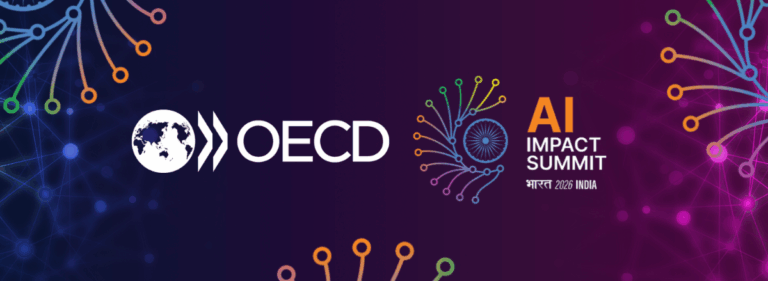Singapore’s model framework balances innovation and trust in AI
To sustain a trusted AI ecosystem, Singapore has to be proactive about providing guidance for AI and responding to industry realities.
Today, Artificial intelligence is at the forefront of global governance discussions. As a cross-cutting cognitive form of technology, it will impact every domain including science, education, industry and create changes at the societal, national and supranational levels.
Singapore aims to create and sustain a progressive and trustworthy AI ecosystem in harmony with this reality. Our AI governance initiatives will support data-driven technologies for innovation and build public trust in responsible AI technologies.
AI governance that balances ethical integrity and regulation for public trust
Before it can reap the full benefits of AI, Singapore must establish a widespread acceptance of AI technologies among organisations and individuals, and that requires creating a good level of public trust.
At the same time, regulating AI technologies prematurely could impede their proper development and deployment. But there is more. New technologies have to be treated the same way as older technologies. Rather than technology-specific, any regulation will have to be outcome-driven and principle-based. This will ensure that outcomes and underlying principles remain consistent no matter how technologies evolve.
Singapore has taken a balanced approach that addresses the real AI governance challenge: how to foster public trust to enable the widespread adoption of AI technologies by addressing the ethical and governance issues. This requires giving guidance to businesses and organisations that intend to deploy AI technologies. For organisations that deploy AI technology at scale, Singapore has relied on established corporate governance and accountability principles to fashion a voluntary governance framework.
Building a voluntary governance approach requires multi-stakeholder consultation from across the spectrum – industry, academia, government, etc. Indeed, the practical realities and the technical nature of AI development mean that no one sector holds all the answers. Consultation ensures that our governance approach is informed and practical for optimal uptake.
Singapore believes that international cooperation on AI governance issues is essential. In an increasingly interconnected and global economy, cross-border trade and provision of goods and services will rely more and more on AI technologies. Singapore supports international collaboration, including the harmonisation of rules and processes, to actively ensure that all global actors work together to facilitate trade and commerce.
Singapore’s AI Governance Initiatives
We have launched three interlinked initiatives to implement this approach:
- Model AI Governance Framework
- Advisory Council on the Ethical Use of AI and Data
- Research Programme on the Governance of AI and Data Use
Model AI Governance Framework
We have created Singapore’s Model Governance Framework to encourage organisations to take an ethical approach when deploying AI technologies. The Model Framework is sector and technology-agnostic, and designed to achieve two high-level guiding principles:
- AI-assisted decision making should be explainable, transparent and fair; and
- AI systems should be human-centric and safe.
The Model Framework translates these ethical principles into implementable practices. It is a living document that is agile, designed to evolve with its adoptees and the fast-paced changes of a digital economy.
We launched the Second Edition of the Model Framework at the World Economic Forum Annual Meeting in Davos, Switzerland in January 2020. It includes additional governance considerations, improved industry relevance and usability. It was released with two complementary initiatives: an Implementation and Self-Assessment Guide for Organisations (“ISAGO”), and the Compendium of Use Cases (“Compendium”).
We developed the ISAGO in collaboration with the World Economic Forum Centre for the Fourth Industrial Revolution (WEF C4IR), to help organisations assess how well their AI governance practices align with the Model Framework. It provides an extensive list of useful industry examples and practices to help organisations implement the Model Framework.
The Compendium contains examples of how local and international organisations across different sectors have implemented or aligned their AI governance practices with the Model Framework, while highlighting the benefits that AI brings to their line of business.
As Singapore’s contributions to global discourse on AI governance, we hope that the Model Framework will be a useful reference in the emerging international discourse around AI governance.
Advisory Council on the Ethical Use of AI and Data
The Advisory Council was established to advise the Singaporean government on ethical, legal, regulatory and policy issues arising from the use of data-driven technologies such as AI in the private sector. It also provides industry with guidance on the responsible development and deployment of AI. The Advisory Council is industry-led, bringing together technology companies, companies that use AI and actors who speak up for employees and consumers.
The Advisory Council’s guidance has been valuable in developing of the Model Framework, ISAGO, Compendium and the Research Programme.
Research Programme
Our academic research programme harnesses cross-disciplinary expertise to generate forward-thinking practices, policies and regulations for AI and data, allowing decision-makers to have better foresight and respond better to the complex issues that arise from using AI technologies and data. These include legal, regulatory, ethical and policy questions. It supports the Advisory Council and informs government and industry discussions on longer-term challenges through its research, networks and conferences.
Sustaining a Trusted AI Ecosystem
To sustain a trusted AI ecosystem, Singapore has to be proactive about providing guidance for AI and respond to industry realities. As AI technology continues to develop with applications everywhere and in every sector, peer support can lead to community building and establishing industry standards. The collation of real world examples and use cases in the Model Framework, ISAGO and Compendium are incipient efforts in this direction.
Apart from encouraging industry to adopt the Model Framework’s practices through the ISAGO and Compendium, we are currently working to train and certify professionals on how to implement AI products/projects responsibly with methods based on the Model Framework. Hopefully this will lead to the establishment of an Expert Panel of trained and certified professionals to help organisations implement responsible AI and provide independent peer assessments for Model Framework implementation. In the longer term, there are plans to create a certification programme for organisations by incorporating responsible AI practices into our existing Data Protection Trustmark certification scheme.
We are also working with a professional body to train and certify professionals implementing AI projects on responsible AI deployment based on the Model AI Governance Framework. This, in turn, can facilitate the creation of an Expert Panel of trained and certified professionals to help organisations deploy responsible AI. In the longer term, we have plans to develop a certification programme for organisations and further incentivise them to put in place responsible AI practices.
To address issues related to the future of work, we are consulting with actors from academia and industry to study the effects of AI. Together, we are developing guidance on how organisations could use AI to augment their employees’ capabilities, including practical advice on how to redesign tasks and re-skill employees to fully harness the transformative potential of AI in workplaces and maximize the benefits of AI.
Looking to the future, we hope that our cooperation with the OECD on AI will deepen our international engagement. We look forward to working with like-minded governments and industry on AI governance issues to build a sustainable and trusted AI ecosystem.
Looking to the future, we hope that our cooperation with the OECD on AI will deepen our international engagement. We look forward to working with like-minded governments and industry on AI governance issues to build a sustainable and trusted AI ecosystem.

































